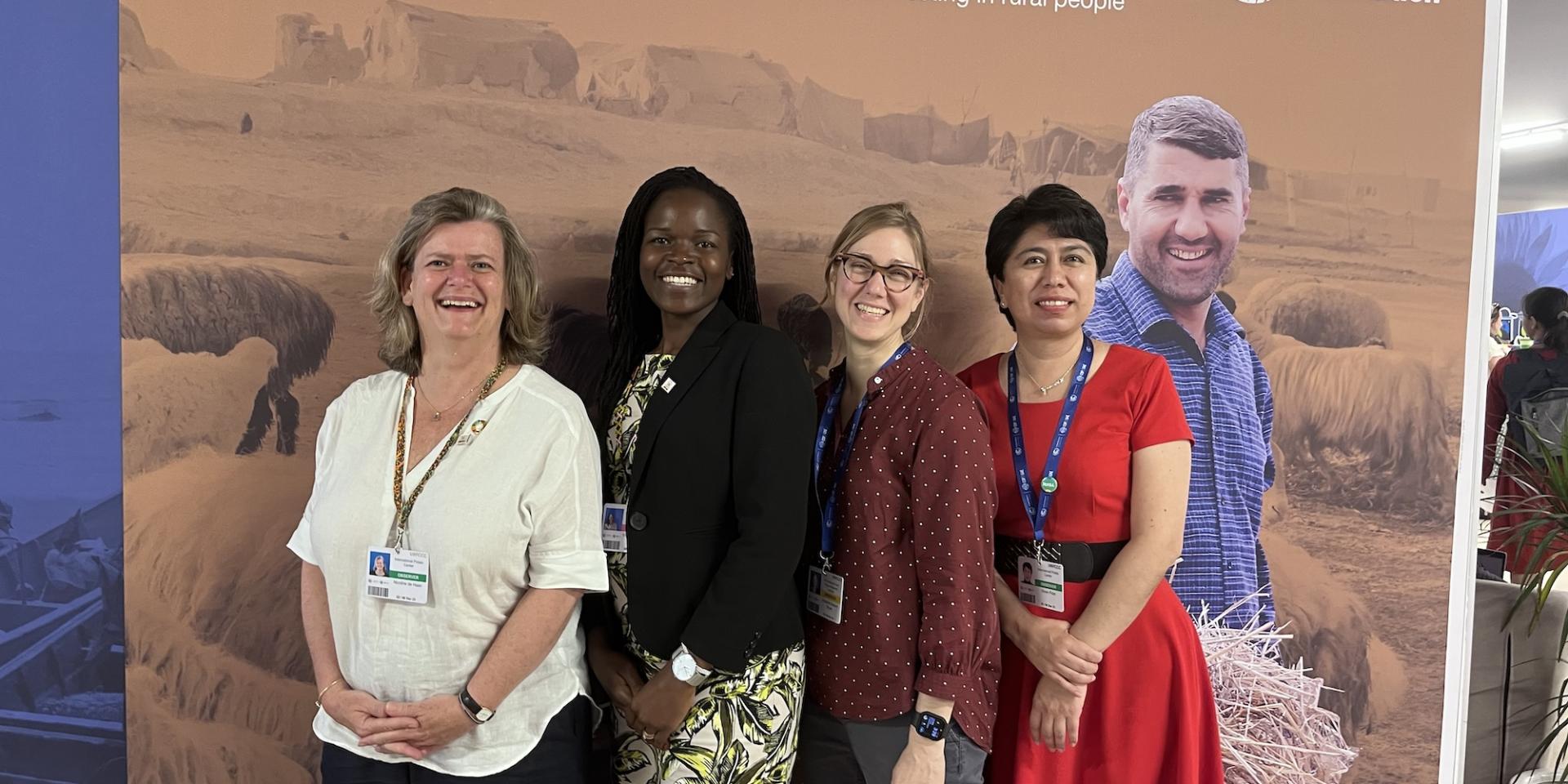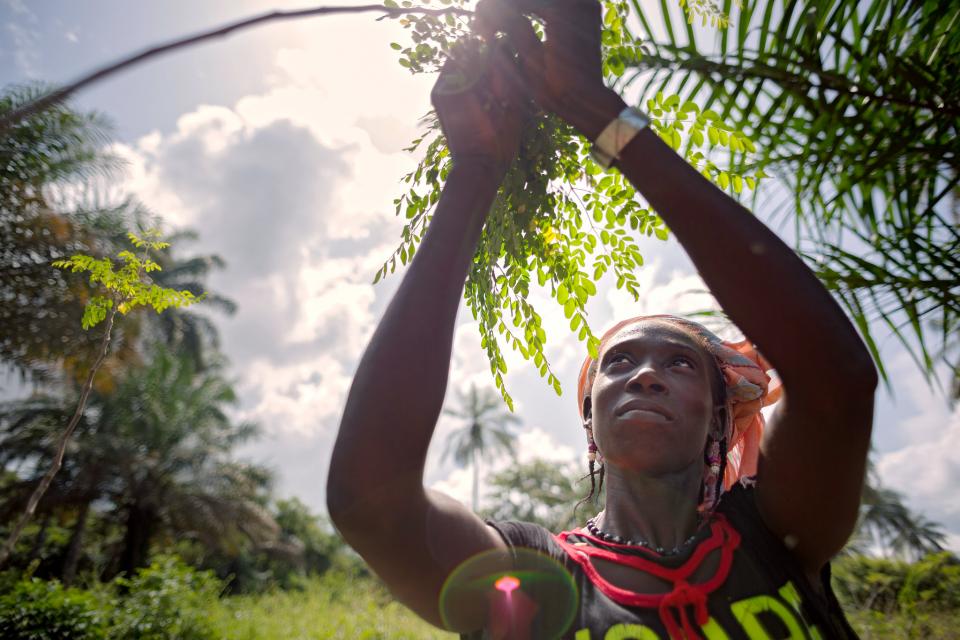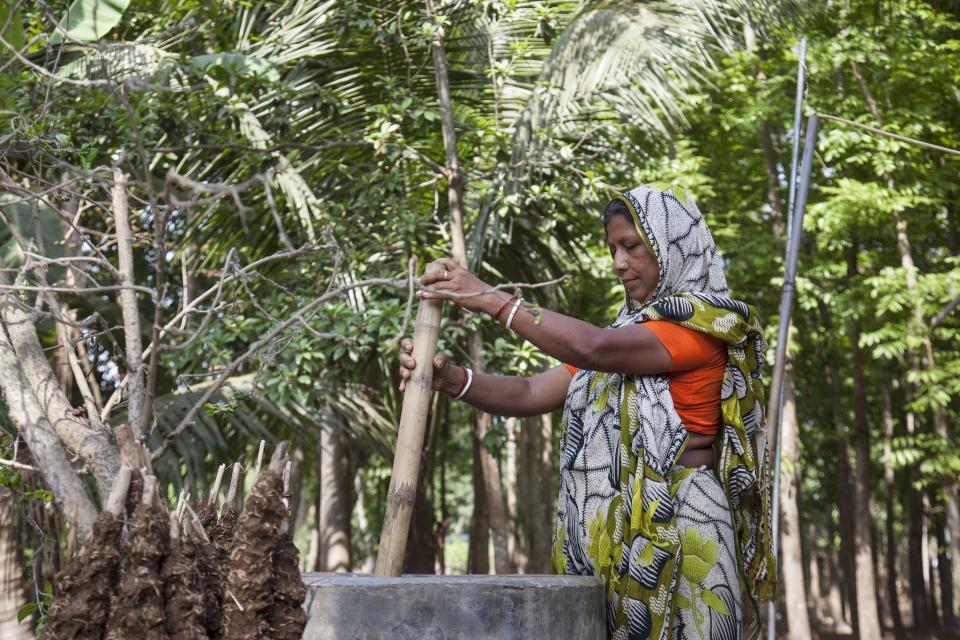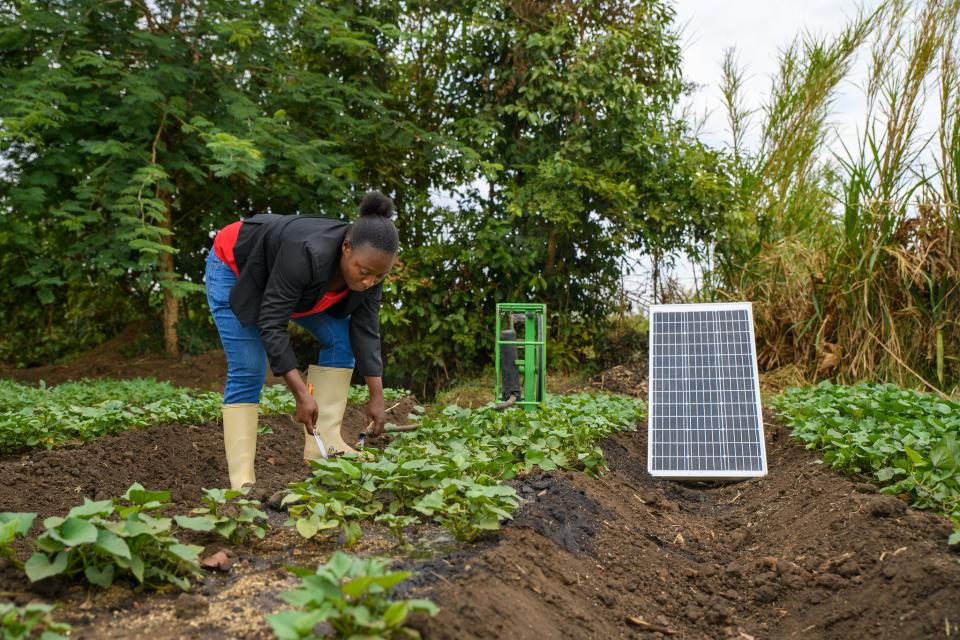COP 28: Insights on how to tackle gender inequality for effective climate action
 Photo: CGIAR GENDER Impact Platform.
Photo: CGIAR GENDER Impact Platform.
On the sidelines of the 28th session of the Conference of Parties (COP 28) to the UNFCCC in Dubai, United Arab Emirates, CGIAR and partners—government, private sector and knowledge partners—officially launched the Aim for Climate Innovation Sprint on Gender and Climate Action on December 3, 2023.
“We are building a whole community to work together to deal with gender and climate change,” noted Nicoline de Haan, CGIAR GENDER Impact Platform Director, during this launch event that focused on ways to tackle gender inequality for effective climate action in food systems.
The sprint brings together more than 21 partners with a US$31 million investment over four years (2023-2027) to ensure that climate innovations in agrifood systems are designed with women’s needs, preferences and aspirations in mind.
Partners engaged in this sprint are collectively working towards three aims:
- Testing new climate innovations to tackle the twin challenges of climate change and gender inequality,
- Creating an enabling environment for more widespread uptake of climate solutions by women.
- Developing metrics to measure changes in gender inequality, gender norms, and women’s empowerment both as an outcome of climate interventions and as a driving factor for increased climate resilience
Speaking during the event, Elizabeth Bryan, Senior Scientist at IFPRI, highlighted that the goal of the sprint is to strengthen the capacity of low-income countries to design policies and interventions with a gender and climate lens and to work with national agricultural research systems to generate evidence on what works as gender-responsive climate solutions are rolled out.
“The CGIAR-led innovation sprint on gender and climate action brings together a wide range of partners including grassroots women’s organizations, information service providers and research organizations. This Sprint offers an opportunity for diverse partners to learn from each other as we test innovative ways to reach, benefit and empower women through climate actions,” said Bryan.
The speakers at the launch event further called for a systemic overhaul to address the persistent challenges faced by women and ensure they are included as agents of climate action for realization of greater impact of climate investments. Jemimah Njuki, Chief Empowerment Officer at UN Women, called for bold ideas and a move from asking why our food systems are unequal to focusing on what is going to work:
“We need a revolution to correct the injustices of the past. The light bulb was not created through incremental improvements to the candle. We need to fundamentally change how we work to remove gender inequalities at scale and in a systemic way.”
During the event, farmers also shared how they are using local solutions to adapt to the climate challenges on their farms. For example, climate solutions adapted from Indigenous practices in the Andean highlands, such as zero tillage production of potatoes in rice patty, save women significant time in production and reduce drudgery.
In Kenya, Eliud Rugut, a young farmer, has been fabricating improved versions of silos—an innovation originally developed in the 1940s —and supplying these to women to store their produce. He highlighted that farmers need simple solutions adapted to local conditions:
“If the solutions are not practical or grassroot led, they will not impact women and youth.”
Therefore, it is important to address gender issues from the very beginning when designing innovations, highlighted Vivian Polar, Gender and Innovation Specialist at the International Potato Center (CIP). Polar said that when developing new crop varieties, researchers have to go back to the breeding pipeline to address women’s priorities from the beginning.
“Many of breeding programs develop varieties thinking about the yield, pest and disease resistance, adaptation to water shortage. Some of these new varieties run the risk of not being adopted because they don’t meet the quality traits needed by women,” Polar explained.
As the innovation sprint moves forward to address these gaps, de Haan called for more partners to put gender at the center of climate action:
“We hope with the sprint we have enough evidence, options and opportunities to make sure women do become part of the solutions as climate change is happening.”


